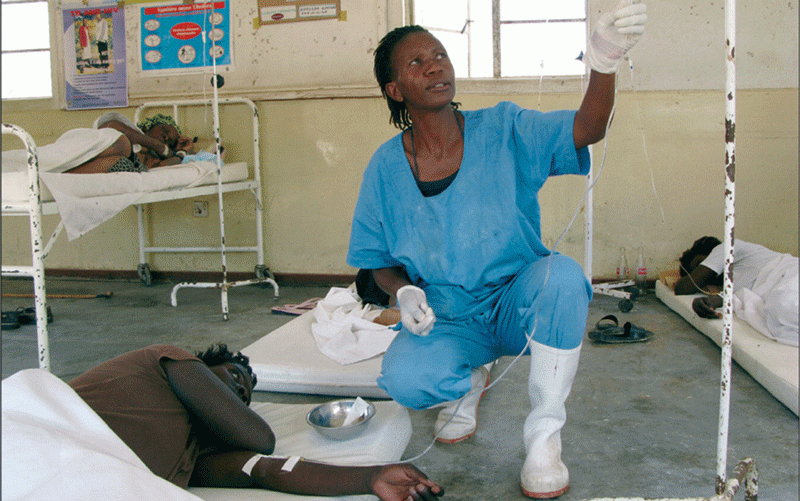
GOVERNMENT has been urged to set up a separate fund for disease prevention and control as the country battles recurrent epidemics such as cholera that has spread across the country.
Health and Child Care ministry director of Nursing Services, Nyaradzai Chiwara, said having an independent fund for infection, prevention and control (IPC) was a necessary intervention during emergencies and outbreaks.
Chiwara said this during an IPC workshop held in Harare yesterday.
In Zimbabwe, IPC programming falls under the Nursing Directorate in the Health ministry.
“Because IPC activities and funding are embedded in other programmes, it is difficult to track how much has been spent for specific IPC interventions and development, inline with the 76th World Health Assembly Resolution in 2023,” Chiwara said.
“There is a need for countries to have a stand-alone budget for the IPC programme to support this growth, and prevent healthcare associated infections and future outbreaks from 35-70%.”
According to Chiwara, IPC funding in Zimbabwe is currently embedded in other programmes targetting maternal and child health, sexual reproductive health and emergency preparedness, among others.
Chiwara emphasised the need for a multi-sectoral approach in resource mobilisation for IPC programming.
- Young entrepreneur dreams big
- Chibuku NeShamwari holds onto ethos of culture
- Health talk: Be wary of measles, its a deadly disease
- Macheso, Dhewa inspired me: Chinembiri
Keep Reading
“Therefore, combined efforts from government, corporates and the media in ensuring the application of standard precautions and transmission-based precautions such as improved hand hygiene practices, rational use of antibiotics and environmental cleaning, isolation of infectious cases could reduce the health burden of antimicrobial resistance by 86%,” she added.
Infection Control Association of Zimbabwe Trust president Celestino Dhege, echoed the same sentiments on the need to support IPC programming particularly for countries such as Zimbabwe.
“The World Health Organisation is calling on member States to increase their investment in IPC programmes to ensure quality of care and patient and health workers’ safety and protect their populations. Increased investment in IPC has been demonstrated to improve health outcomes and reduce healthcare costs and out-of-pocket expenses,” Dhege said.
Dhege said COVID-19 was a wake-up call on the need to have a separate budget for emergencies.
“We are looking at a scenario where we came from COVID-19. If you look at IPC it is not just about hand hygiene, it covers a lot of things. That is why we are advocating for a domestic budget,” Dhege said.
“We hope that the government will provide a good budget so that we improve the health system to make sure that there are no diseases. Well what we have done while working withthe ministry is to develop a strategic budget.”










